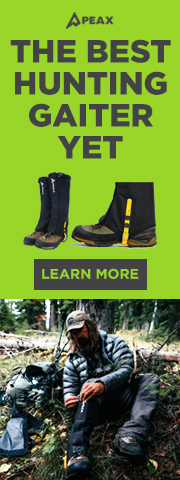JohnFitzgerald
New member
- Mar 31, 2014
- 1,108
Troy from Glacier Country and I have had this talk many times. What does a bugle mean? Is it to attract cows or a warning for other bulls to stay away? Does it serve a dual purpose. Elk calling can\'t be as complex as others make it.
Sound A is for when he\'s talking to bulls. But when you add sound B to the end it\'s for cows. Then when you inject sound C with A and B it\'s for the bulls again. Really?????? Why would a language be so complex? Or are we making it more complicated than it really is.
Sound A is for when he\'s talking to bulls. But when you add sound B to the end it\'s for cows. Then when you inject sound C with A and B it\'s for the bulls again. Really?????? Why would a language be so complex? Or are we making it more complicated than it really is.




